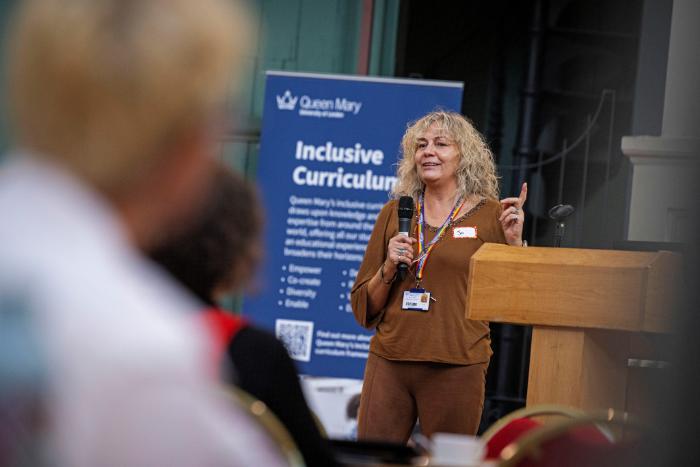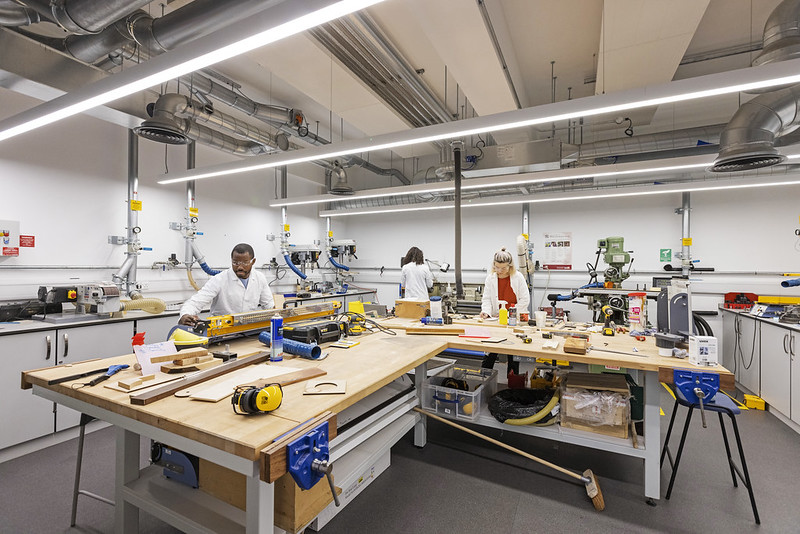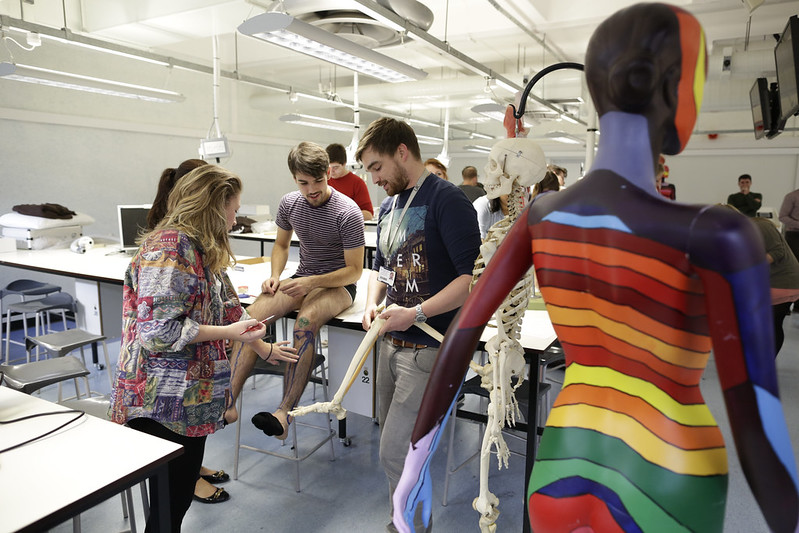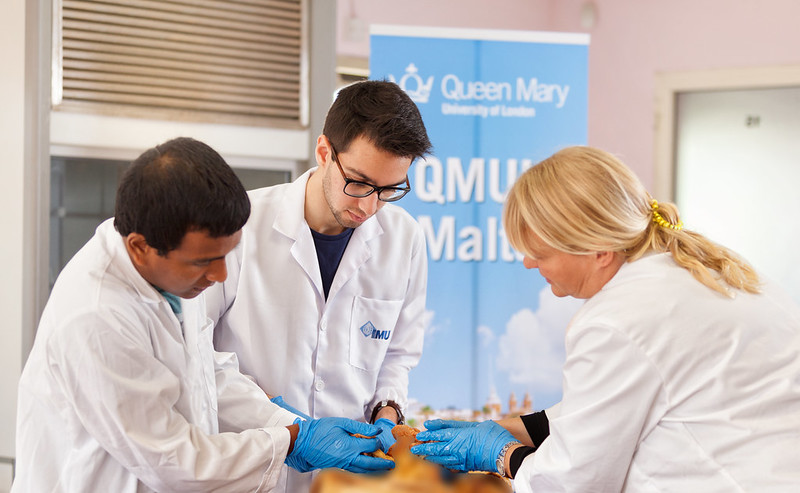
Master of Education: Academic Practice
Our new MEd programme is for Queen Mary educators engaged in teaching and the support of student learning who wish to further their professional development in education.
In 2025 we are launching a new Masters’ of Education. The MEd Academic Practice enables the exploration and development of mentoring, coaching and supervision, and the opportunity to inquire into, advance, and innovate pedagogical applications through small-scale research. Available exclusively to Queen Mary staff, participants will be able to continue from PGCAP modules into the MEd.
Eligibility
To qualify for the programme you will be expected to:
1. Be a Queen Mary employee, normally on an academic Teaching and Scholarship contract , with a contract duration of at least the duration of MEd.
2. Be involved in a significant amount of teaching and/or support of learning. Normally this will mean at least 60 hours of Higher Education practice in the support of learning while you are enrolled on the course. This might include, for example, teaching small groups, lecturing, supervising research students, academic advising.
3. Hold an existing education qualification/recognition (one of the following):
- PGCAP (or equivalent qualification gained at another institution) within the past five years
- Advance HE Fellowship achieved within the past five years
- Advance HE Fellowship achieved more than five years ago, plus evidence of active scholarship within the last five years
Please note that NHS staff, including those awarded honorary status by Queen Mary, are not eligible to enrol on this programme. Queen Mary’s Institute for Health Sciences Education offers Medical Education PGCert and Medical Education MA programmes and has established a new Academy of Clinical Educators.
Our programme
Modules and programme structure
To obtain the MEd, in addition to the PGCAP modules, you will need to take three modules over two years:
- Facilitating Change in Higher Education (30 credits; QMA7003)
The module builds on ‘Teaching and Learning in the Classroom’ from the PGCAP by considering the wider landscape in which an educator will be involved as they foster collaborative working with colleagues and students in the influence of educational practice and to improve students’ learning and experience. Through a frame of initiating, planning and effectively working with change processes, the module focus is supervision, coaching, and mentoring.
Facilitating Change in Higher Education introduces participants to key theories of change, and by drawing on a range of approaches and models, participants critically explore and reflect on their application in their local contexts through practical strategies and skills, for example, individual and group tutorials, project supervision, mentoring others, and working with teams to facilitate change. - Methods and Methodology for Conducting Education Research (30 credits; QM7004)
This module introduces participants to research methods in education through a vibrant showcasing of examples of higher education research within and beyond Queen Mary University. Participants will explore different research paradigms, methodologies and methods, critically consider their relative strengths and weaknesses, and consider ethical issues and frameworks including approval processes. Consequently, participants will make judgements about which approaches to educational research to use in their own research enquiries, and develop a research proposal on which they will receive peer and tutor feedback during a mini conference. - Education Research Project (60 credits; QM7005)
The culmination of the MEd Academic Practice is a substantial 60-credit enquiry which will contribute to the development and enhancement of professional knowledge and practice for you and for others across HE as relevant to your focus. It involves an in-depth consideration of a problem or question of your choosing as you draw on your MEd modular study in conjunction with tutor supported supervision to advance your Education Research Project.
How will you learn?
The programme is delivered in blended mode, offering maximum flexibility whilst at the same time supporting the development of community and building of networks. Commencing with an in-person introduction to build relationships with each other and the course, you will learn through individual asynchronous activities and synchronous sessions offered both online and with in-person where possible. Asynchronous activities will take place via QMplus and include assigned readings, recorded presentations, forum/blog posts and independent research and exploration of practice. Peer learning also plays a central role in the programme, and in synchronous sessions the focus is on active learning, collaborative working and learning from each other’s experiences.
How will you be assessed?
Assessment across the programme is designed to be varied, practical, useful and authentic and is by coursework only. It includes patchwork assessment and reflective pieces in QMA 7003, a presentation of research proposal and action plan in QMA 7004 and a poster and dissertation in QMA7005, accompanied by participation in a mini-conference.
Assessment is pass/fail, this being appropriate in a professional development programme to foster active engagement, attention to feedback, and dialogue on the standards, principles and practices of teaching and learning in higher education.
Duration/time commitment
In addition to the PGCAP modules (which you can take over one or two years), the MEd modules will take two years to complete. Each 30-credit module is equivalent to approximately 300 hours of study time, and the 60-credit is equivalent to approximately 600 hours of study time.
In your first year of the Masters (Modules QM7003 and QM7004), you will typically have 60 hours of timetabled seminar or webinar sessions, plus a mini-conference and asynchronous and independent activities.
Module QM7004 (the final research project) will take one academic year to complete and be facilitated mostly through supervision andpeer support, in addition to a launch day.
Mode of delivery
The MEd Academic Practice is an online programme which is fully flexible.
Most modules will offer webinars and student-paced online activities for you to complete in your own time. Some modules will also offer optional in-person sessions.
Attendance policy
You are expected to attend, engage with and prepare as instructed for all scheduled topics on the modules you take. While we encourage you to attend all webinars, you won’t be penalised for not attending sessions if you’re unable to. If you are unable to attend the live session, then you will need to watch the recording and complete asynchronous activities. Failure to engage in at least 80% of a module’s teaching and learning activities (synchronous and asynchronous) may result in your de-registration from the programme. If you leave Queen Mary during the programme and have completed at least half of it, you will be able to continue to complete your programme with us. You may choose instead to use the credits already gained towards a similar qualification at your new institution.
Fees
The MEd Academic Practice is an internal professional development programme and there are no fees. The programme is only open to eligible Queen Mary educators.
How to apply
Places on this programme are limited and capped at 15 for academic year 2025-26. Submitting an application does not guarantee your place on the programme.
To apply for a place:
1. Discuss your interest in the MEd Academic Practice with your Head of School or Institute (or equivalent).
2. Fill in the ‘Expression of Interest’ form
(you will need to upload a statement of support from your Head of School / Institute and proof of your eligibility. Please use this template MEd Reference template Sep 25.docx)
The deadline to submit expressions of interest is 20 June 2025.
3. You will be informed of the outcome of your application in early July.


